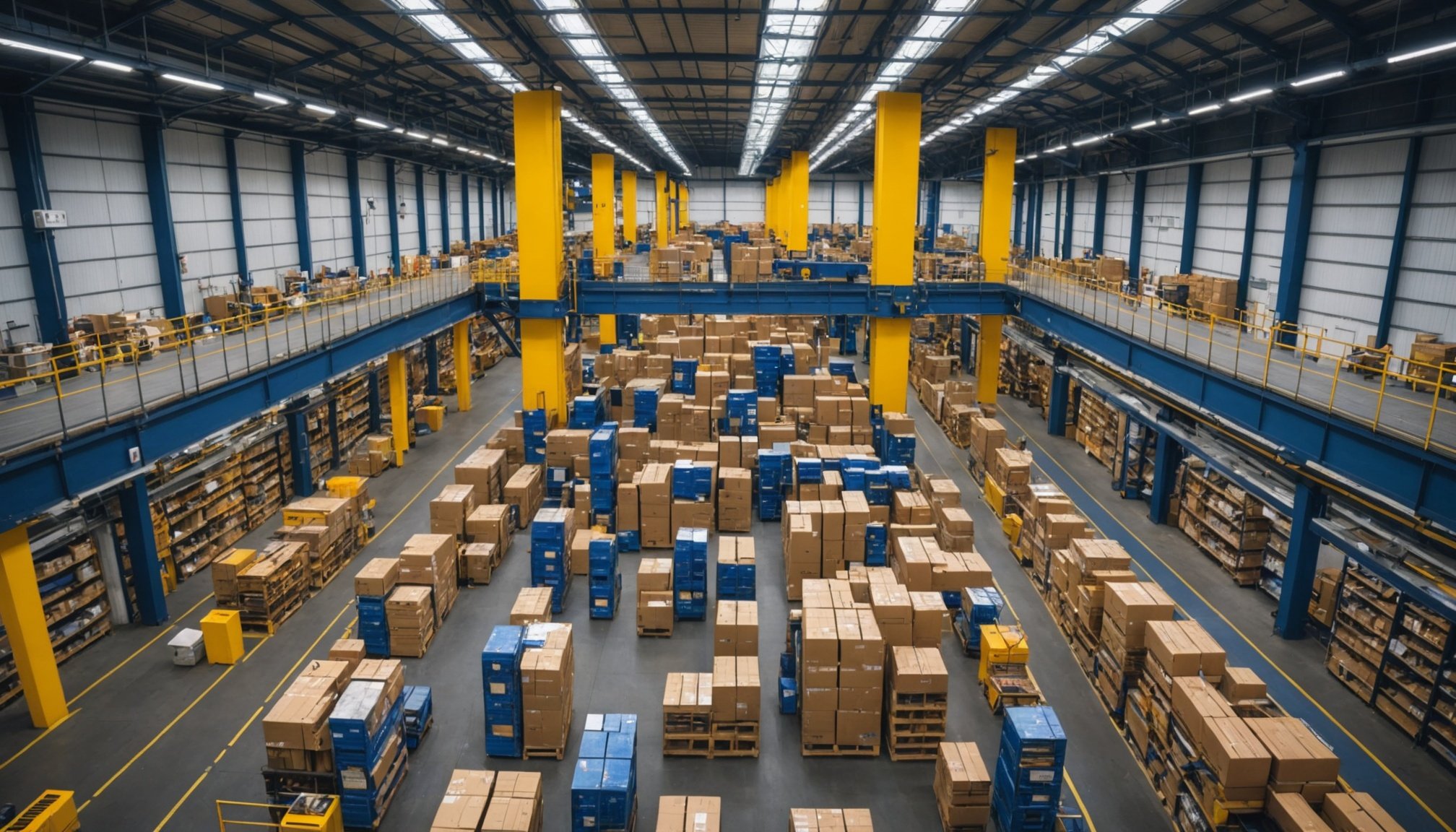The Role of Big Data in Retail Supply Chains
In the dynamic world of UK Retail, the integration of Big Data technology is pivotal for transforming supply chains. It serves as a powerhouse for retailers to enhance various operations efficiently. By harnessing data-driven decision making, retailers can foresee trends, manage inventory, and fine-tune their supply chains with confidence.
Big Data plays a crucial role in understanding customer preferences and improving service delivery. Retailers utilise insights from large datasets to tailor marketing strategies, ensuring they meet consumer demands head-on. Current trends indicate an increasing reliance on data among UK retailers to stay competitive and foster innovation.
In parallel : Crucial Elements for a Robust Cybersecurity Plan in the UK Healthcare Sector
The application of Big Data extends beyond simple analytics. Advanced technologies such as machine learning and artificial intelligence enable predictive modeling, which assists retailers in anticipating challenges and responding proactively. As a result, they achieve a streamlined supply chain that aligns with customer satisfaction and cost efficiency.
Emerging patterns underscore the importance of adopting data-centric approaches. UK retailers are proactively investing in technology to leverage Big Data, thus driving substantial gains in productivity and operational dexterity, ultimately ensuring successful and resilient retail supply chains.
In parallel : Revolutionizing UK Marketing: Proven AR Techniques to Create Unforgettable Campaigns
Enhancing Transparency in Retail Supply Chains
In the realm of Retail Management, enhancing Supply Chain Transparency through Data Analytics is pivotal for fostering trust and efficiency. Transparency involves making sure every stage of the supply chain is visible and traceable, from sourcing to delivery. This not only builds consumer confidence but also streamlines operations, enabling quick response to irregularities.
Data Analytics plays a crucial role here by providing accurate insights into supply chain activities. UK retailers, like Tesco and Sainsbury’s, have leveraged big data to improve transparency. For example, by using real-time tracking systems and data-driven reports, these retailers can pinpoint and address inefficiencies swiftly.
Several technological tools facilitate this transparency. Advanced data analytics platforms offer dashboards that visualize the entire supply chain, highlighting any potential bottlenecks. Furthermore, blockchain technology ensures immutable records of transactions, enhancing accountability and encouraging ethical sourcing.
In conclusion, transparency in retail supply chains is not just a current trend—it’s a necessity. By embracing Data Analytics, UK retailers can provide assured transparency, resulting in efficient operations and elevated consumer trust. This synergy highlights the transformative power of big data technology in retail supply chains.
Achieving Efficiency through Big Data
Leveraging Big Data has become crucial for retailers aiming to achieve operational excellence and optimize their supply chains. Key metrics such as inventory turnover rates, demand forecasting accuracy, and delivery times are pivotal benchmarks in assessing supply chain efficiency.
Retailers harness large datasets to dissect and understand these metrics better, driving significant improvements. For instance, Tesco’s use of advanced analytics to enhance inventory management practices has led to reduced waste and increased product availability. This success story underlines how predictive analytics forecasts trends with impressive accuracy, aligning stock levels dynamically with anticipated demand.
Data analytics transforms processes like supplier collaboration and logistics by providing real-time insights. Retailers can swiftly identify bottlenecks and implement solutions that streamline operations, thus reducing delays and improving service delivery.
Moreover, adopting a data-centric approach allows a nuanced evaluation of elements like energy consumption and resource utilization, ensuring cost savings while upholding efficiency.
Inpects of big data, exemplified by the reduction of unnecessary expenditures, reiterate the necessity of a strategic alignment of analytics with business goals. Retailers committed to efficiency elevate consumer satisfaction and maintain a competitive edge.
Technological Innovations Supporting Big Data Integration
In the rapidly evolving landscape of UK Retail, embracing technological tools is essential for effective big data integration. Advanced technologies enable retailers to transform data into actionable insights that enhance their supply chains. Critical in this transformation is Cloud Computing, which offers scalable and cost-effective solutions for storing and processing large data volumes. By utilizing cloud platforms, retailers gain flexibility and security, ensuring seamless data access and management.
Artificial Intelligence (AI), another game-changer, enhances predictive analytics through machine learning algorithms. Retailers now anticipate consumer behaviour and adjust strategies in real-time, enhancing service delivery. This capability increases efficiency and customer satisfaction.
Additionally, implementing Internet of Things (IoT) devices within retail supply chains provides valuable data on inventory levels and equipment status. These devices aid in precise inventory management and reduce operational disruptions.
Looking forward, the integration of Blockchain Technology could revolutionize supply chain transparency and security. With tamper-proof data records and enhanced traceability, UK retailers are set to ensure ethical sourcing and compliance with industry regulations.
Technological innovation is thus a catalyst for achieving robust, data-driven supply chain management.
Challenges and Considerations in Implementing Big Data
Implementing Big Data in retail supply chains is not without hurdles. Retailers often face challenges such as data quality issues, integration complexities, and significant costs associated with setting up robust data infrastructure. A crucial consideration is the change management process, where organisations must align their culture with a data-driven approach.
Effective strategies to overcome these barriers include change management through comprehensive training programs. By educating employees on the benefits of Big Data, retailers can foster a culture that embraces innovation. This involves teaching team members how to leverage data analytics for improved decision-making and operational performance.
Moreover, adopting a phased implementation approach can help mitigate risks. Retailers are advised to begin with pilot projects that target specific areas where Big Data can have tangible impacts, such as inventory management or logistics optimisation, before scaling up to broader applications.
Lastly, consistent monitoring and evaluation are essential for successful retail implementation. By regularly assessing the impact of Big Data, retailers can adjust their strategies to ensure they address evolving challenges and maintain alignment with business goals.
Future of Retail Supply Chains in the UK
The future trends within UK retail supply chains are marked by continuous evolution and innovation. Experts believe that big data will significantly shape retail operations, driving efficiency and responsiveness. Retailers optimising their supply chains using advanced data analytics are poised to lead the industry. This transformation allows businesses not only to anticipate consumer demands but also to adapt dynamically. The implications for consumers include improved service delivery and timely availability of products due to enhanced demand forecasting. Industry stakeholders can expect increased collaboration and streamlined processes.
Retail Industry analysts forecast a shift towards more personalised shopping experiences. Utilising big data, retailers can offer tailored product recommendations based on consumer insights, reshaping the shopping journey. Supply Chain Management practices are set to become more agile, with an emphasis on sustainability and ethical sourcing aligned with consumer expectations.
In addressing these future dynamics, UK retailers are investing in cutting-edge technologies and fostering a culture of innovation. The landscape will likely feature partnerships with tech companies and a focus on building resilient supply chains capable of weathering disruptions. Embracing these trends will enable retailers to thrive in a competitive market.









